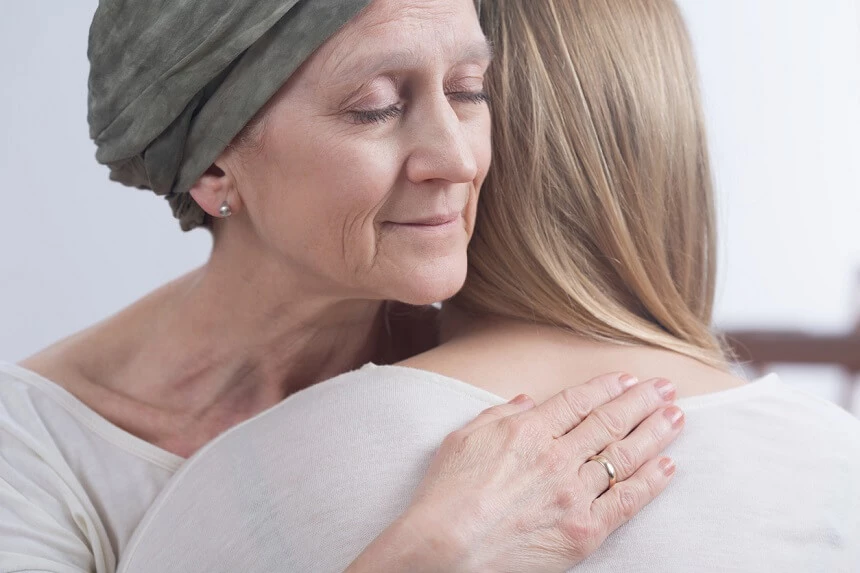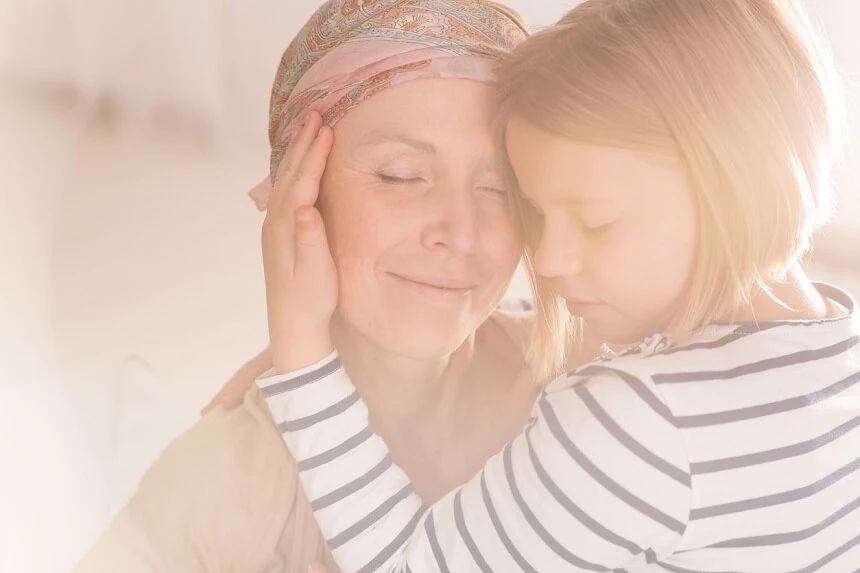PSYCHOLOGIST CONSULTATOION. BUY

The role of conversation in cancer
Communication between family members and the patient is very important not only for the relatives, but also for the patient himself. Questions from family or friends can help the patient think about things he has not thought about himself. Some patients decide not to tell their loved ones about the diagnosis of cancer, but it is worth remembering that talking can help the patient get rid of negative emotions, express their fear and share their doubts.
Can you talk about a cancer diagnosis?
This question is sometimes asked by patients who find out they have cancer. Of course, this is a matter of your own decision. Some people try to hide this fact for as long as possible, wanting to spare their family suffering, protect them from sadness. Unfortunately, this strategy is only effective for a short time. When a sick person stays with relatives in one house, they instinctively begin to sense that his emotional situation has changed. He is usually sadder, pensive, and sometimes rude, surly, which can create unnecessary conflicts.
Learn how to cope with waiting for an oncology diagnosis.
Who should I tell about cancer?
It is obvious that when we find out about the disease, it is impossible to tell everyone about it right away. It is up to us to decide to whom to pass this information on. As practice shows, it largely depends on the patient's family situation and the quality of relations between loved ones. Single people often share information with friends or co-workers. It is worth remembering that the doctor cannot do it for us if we do not agree to obtain information about our health.
Also read about how to deal with your emotions after a cancer diagnosis?
How to tell relatives about cancer?
When we decide to tell our family about our health, remember a few rules:
- Say only as much as you want
It is important that when disclosing information about the state of health, the patient is in harmony with himself. The topic is undoubtedly traumatic for him, so the scope or answers to individual questions depend only on the patient. We should disclose as much as we feel is appropriate, and those close to us should understand and support such conduct, without pushing it.
- Find the right place and time to talk
Conversation with loved ones about cancer should not take place "on the run". Find a suitable place where all family members will feel comfortable. It is also worth setting aside enough time for yourself. Usually, we are not able to fully prepare for such a conversation, because it can go in an unpredictable way, evoke strong emotions, different moods, so it is important that at least these two factors are planned.
- Use methods of effective communication
Both at the first conversation about the disease and subsequent ones, it is worth remembering to follow a few simple rules:
- Make sure that the interlocutor understands exactly what you want to communicate,
- Create a clear message.
What you want to say to the interlocutor should be clear, specific. It's important to be straight.
- Respect the emotions of the interlocutor.
Different people react differently to the same message. Sad information can cause sadness, tears, disbelief, and sometimes the need to go out for a while. Let's not judge such behavior.
- Be honest.
Our interlocutors, especially those close to us, sense our emotions. They are transmitted even in a non-verbal way, e.g. by body position, making or avoiding eye contact or facial grimace. So let's try not to pretend that everything is fine, that we are not afraid. Let's talk openly about our feelings, fears, thoughts, if we feel the need.
- Listen actively.
Such listening is essential in order to accurately understand what is being communicated. You should fully focus on the interlocutor and his problems. This breeds a bond, respect and the possibility of an empathetic look.
- Paraphrase.
This technique helps to understand the intention of a loved one, it consists in capturing the meaning of the heard statement in a different form, e.g. "Did I understand you correctly that you need ...."
- Reflect.
In order for communication to be effective, it is worth informing the interlocutor what we think his feelings are, e.g. "I think you are a bit calmer".
- Be assertive.
You should convey your thoughts and feelings respecting the rights and views of the interlocutor.
Talking to children about cancer
It can be very difficult to pass on information about cancer, especially to your own children. Parents often wonder whether it is worth telling their children about the diagnosis, or rather keep silent and, in their opinion, protect them from suffering. Of course, this is the choice of the patient himself, but it should be remembered that by informing the child, we show that it is important for us that we trust him. It is important to convey information about the disease in language appropriate to the age of the child. Thanks to the conversation, we give the child the opportunity to ask questions or release emotions, which has a calming effect. Don't be nervous, even if he asks a few times, let's answer every question. The child will then not feel left alone with his feelings. It is also worth thinking about what and how we want to convey to the child. Let us mention, for example, whether and to what extent the situation will affect the daily life of the child.
Such a conversation helps not only the child, but also the oncological patient himself. Talking out loud about our problem and related fears, we get used to them easier. This is one of the methods of dealing with stress.

How a family can support a person with cancer
The simplest support that the family can provide to the patient is referred to as material and organizational support, i.e. related to replacing a person with cancer in their roles, providing care or financial support1. Emotional support, which should be tailored to the patient and his expectations, is much more difficult. Some patients need a conversation, while others are satisfied with the physical presence at the other person's home or a daily show of tenderness. You have to respect that. This is a very individual matter and should be discussed with the patient. Sometimes the caregiver himself may also need support, then it is worth using the help of a psychologist or psycho-oncologist.
The role of the family in different periods of the disease
Acute phase
This is the period from noticing the lesion and diagnostic tests until the diagnosis is made1. It is characterized by high emotional tension, which each family member reacts differently. During this period, the search for the cause also appears. It is important that members of the community in which the patient lives do not hurt the patient and do not disturb his process of adaptation to the disease. One should refrain from reproaching the patient for drinking, smoking or unhygienic lifestyle. It is good when both the patient and the family agree on the possible causes of the disease, e.g. mainly physical injuries, infections, exposure to toxic substances or strong emotional experiences are mentioned.1
Another problem related to the news about the disease is the focus of the family and the patient on its negative effects. In such situations, we should approach the problem more task-wise than emotionally. It is worth encouraging the patient to fight the disease, to lead a healthier lifestyle. Paradoxically, during this period, positive consequences of the diagnosis may occur, such as deepening of emotional bonds in the family or re-evaluation.
Chronic phase
Various family conflicts may arise during this phase. They are usually related to views on how to treat the patient. Some people believe that since the patient has undergone chemotherapy, he is healthy and can resume his activities, while others tend to be overprotective. Such behavior may, on the one hand, cause grief, anger, anger and a sense of incomprehension in the patient, as well as sadness that the family has stopped supporting him. On the other hand, he may feel compelled to focus on his illness by being overly concerned. It is worth finding a certain balance between the two attitudes in this phase. For example, you can ask the patient himself what activities he feels able to perform and from time to time simply ask how he feels.
Recovery phase
Family problems may also arise during this phase. They will usually be related to the effects of recovery activities, such as chemotherapy and radiotherapy, which often make the patient feel unwell. There may be cardiovascular changes, brain changes, cognitive problems or problems of an intimate nature. During this period, it is very important to show the sick person understanding, tenderness and acceptance of the changes that have taken place.
Advanced disease phase
Just as for the patient the first recurrence of cancer, for the family this phase is the most stressful in the course of the entire disease1. It is associated with the fear felt by loved ones of the imminent death of a loved one, the prospect of separation, a sense of powerlessness. How we cope during this period depends on many factors, primarily on our age or the stage of development of the family. It will be different in the case of the elderly and different when there are small children in the family. The course of the disease is also an important factor. If the deterioration is slow, it is easier for us and the patient to prepare for parting. Social support plays an important role during this period. We should use the presence of relatives if we feel the need and give ourselves the opportunity to express emotions (both people helping and the patient himself).
It is worth remembering that in each phase you can also use the help of a psychologist who will indicate the appropriate methods of coping, provide appropriate support, and help you work through emotions.
Related Topics
Prezentowanych informacji o charakterze medycznym nie należy traktować jako wytycznych postępowania medycznego w stosunku do każdego pacjenta. O postępowaniu medycznym, w tym o zakresie i częstotliwości badań diagnostycznych i/lub procedur terapeutycznych decyduje lekarz indywidualnie, zgodnie ze wskazaniami medycznymi, które ustala po zapoznaniu się ze stanem pacjenta. Lekarz podejmuje decyzję w porozumieniu z pacjentem. W przypadku chęci realizacji badań nieobjętych wskazaniami lekarskimi, pacjent ma możliwość ich odpłatnego wykonania. Należy potwierdzić przy zakupie badania szczegóły do jego przygotowania. |


